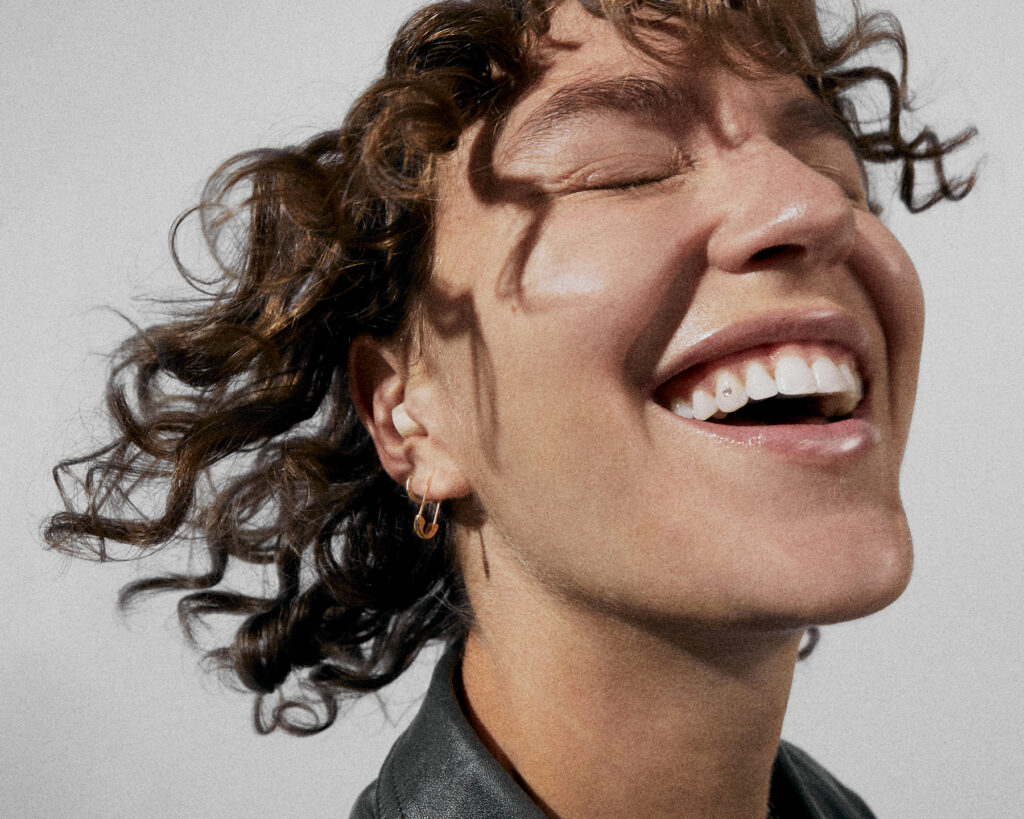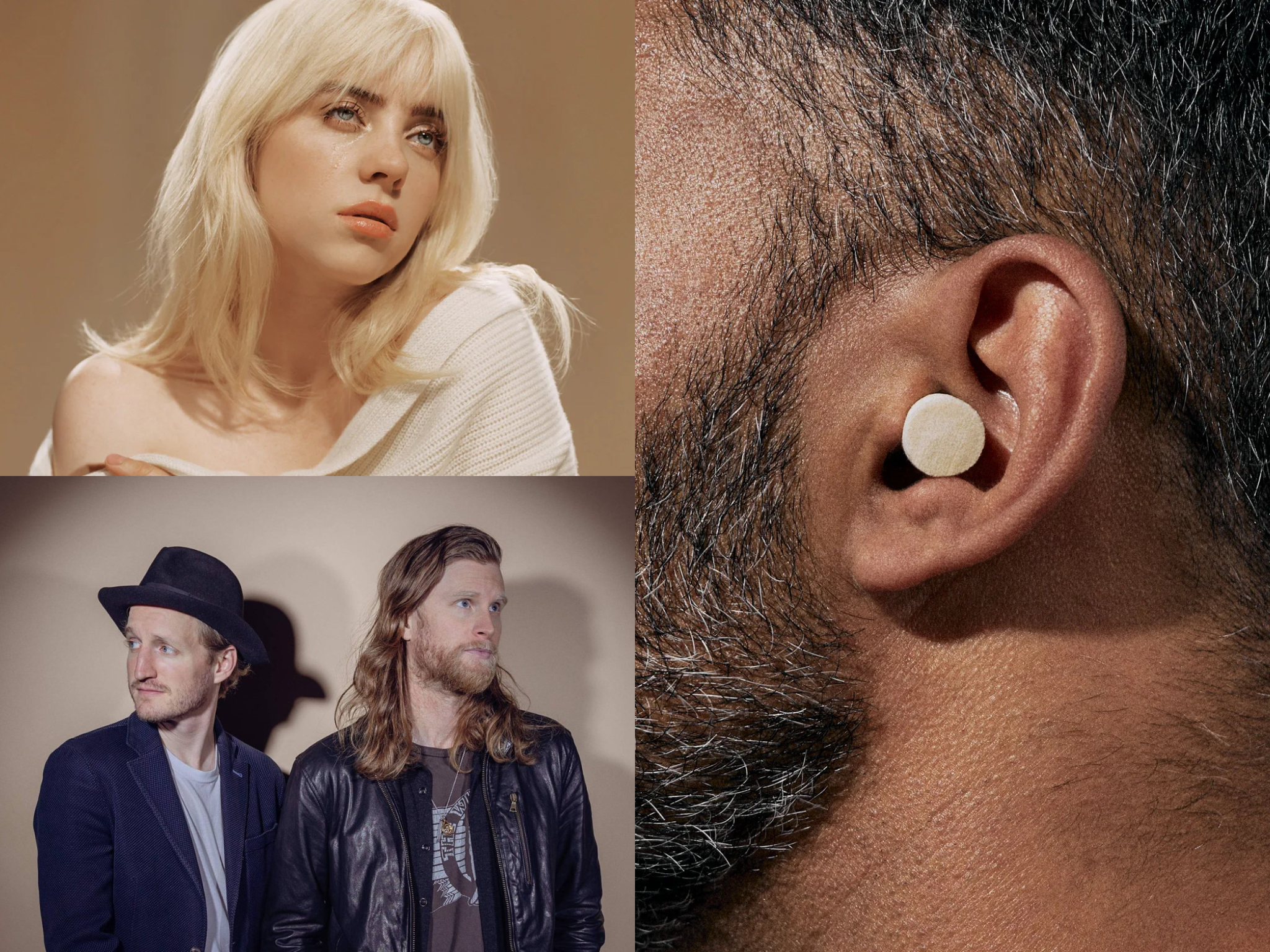Billie Eilish, The Lumineers Embrace Plastic-Free Mycelium Foam Earplugs in Concerts
5 Mins Read
US startup GOB, which makes eco-conscious wearables, is debuting mycelium foam earplugs in collaboration with Billie Eilish and The Lumineers.
Last month, New York startup Ecovative closed a $28M funding round for its mycelium-based food and fashion innovations, announcing that it would soon launch accessories under its Forager brand.
Now, it is making good on that promise through a partnership with GOB, a new startup focused on planet-friendly wearables. Based in San Francisco, GOB is marking its brand launch with the debut of its first product, a single-use earplug called DFC-001.
While single-use isn’t exactly what you’d think of when you think of sustainability, these earplugs are made from Forager’s mycelium foam – and nothing else. This means they can break down in weeks to months, as opposed to the decades to centuries that it takes for conventional, PVC-based foam earplugs.
As a sign of confidence in its functionality, GOB has closed an oversubscribed pre-seed funding round of $1.2M led by Baukunst, alongside angel investors and creative syndicate Selected Works. It has also landed deals with the likes of pop superstar Billie Eilish and alt-folk band The Lumineers, plus leaders in the hospitality, aviation, and motorsports industries.
“It’s hugely important that we support and road-test new products, especially when it comes to sustainability,” said Dick Massey, the tour manager of Billie Eilish. The singer has been vocal about the industry’s commitment to fighting climate change, and has set up Eco Villages as part of her efforts at the ongoing Hit Me Hard Hit Me Soft tour.
“GOB’s earplugs are a great example – they provide excellent hearing protection, and everyone I’ve shown them to loves that they’re 100% biodegradable,” added Massey. “If more people knew about them, they’d use them. It’s a brilliant concept, and I hope it pushes others to think outside the box.”
Plastic-free earplugs that break down in weeks

Ecovative uses its AirMycelium technology to grow different strains of mushrooms for a variety of uses, including vegan bacon and animal-free leather. These are produced on an industrial scale in vertical farms in under two weeks, cultivating three million sq ft of material annually on one acre of land.
This also means the earplugs are produced with a much lower environmental footprint. Foam earplugs are usually made from PVC, a type of plastic derived from petroleum. Plastic production is responsible for 3.4% of global greenhouse gas emissions, a share that is set to double by 2060.
Plastic waste is a major problem in the fight against climate change, given that it takes between 20 and 500 years to decompose. And over 90% of plastic pollution comes from single-use products.
The GOB earplugs are also single-use for convenience in live events and other loud environments. But unlike PVC foam, mycelium is a “hyper-renewable resource” that breaks down in a matter of weeks. And since they’re 100% mycelium, they can return nutrients to the earth at the end of their use.
“GOB’s earplugs are USDA Certified Biobased and entirely made from mycelium, a natural material that breaks down as easily as the produce you eat,” GOB told Green Queen.
“Unlike traditional earplugs, ours fully biodegrade in your home compost, enriching the soil in the process. This regenerative cycle not only prevents waste but actively nourishes the earth, going beyond sustainability to contribute to a healthier environment,” it added.
The mycelium foam is grown from agricultural waste and requires “significantly less energy and resources” than petroleum-based versions. According to GOB, replacing just six months’ worth of PVC foam earplugs (numbering 20 billion) with the mycelium alternatives ave between 198 million and 418 million pounds of CO2e annually.
“Mycelium is exactly what we need to tackle the problem of single-use foams polluting our planet,” said Ecovative co-founder and CEO Eben Bayer. “GOB’s approach hits the mark – it’s the right product at the right time.”
The music industry’s efforts to decarbonise

Bands and artists have always used earplugs on stage to protect from ear damage amid the loud sounds of a music event. But now, more and more concertgoers are getting in on the act. In the UK, 58% of people who have attended or will attend a gig report experiencing tinnitus or temporary hearing loss after listening to loud music.
A WHO study from 2020 found that the percentage of concert attendees who used hearing protection increased from 1.3% to 8.2% when earplugs were provided. The mycelium earplugs – which range from $11 for a four-pack to $40 for a month’s supply – are said to offer “superior noise dampening” across every frequency, thanks to the unique cellular structure of the fungi, and this helps protect hearing while preserving sound quality, according to GOB.
It has launched a Live Loud campaign to encourage use, targeting consumers who frequent concerts, clubs, festivals and other loud experiences, but want to do so in a way that is conscious of the environment.
“Unlike foam, which can feel rigid and uncomfortable over time, our earplugs mould gently to the shape of your ear, ensuring a more comfortable fit for extended use,” said GOB. “With their breathable, lightweight design, GOB earplugs offer a seamless combination of comfort and performance, making them the better choice for both your ears and the environment.”
“GOB’s mycelium earplugs are a great example of how innovation can address environmental issues in a way that benefits everyone. They are the most comfortable earplugs I’ve ever used, and they offer a simple, scalable solution to reducing plastic waste,” Brandy Schultz, co-founder of Sound Future, a non-profit championing climate tech to greenify live events.
Her husband Wesley Schultz, lead singer of The Lumineers, also endorsed the functionality of the mycelium earplugs. “I’m really excited about GOB’s earplugs because they’re comfortable, made from mushrooms, and they’re an easy swap for a product our industry burns through constantly,” he said.
By partnering with such famed musical acts, GOB is hoping to overhaul a live events industry that has an outsized impact on the planet. Coldplay, for example, famously announced a 12-point plan to halve the carbon footprint of their Music Of The Spheres Tour – their measures managed to curb emissions by 59%.
And in August, fellow British brand Massive Attack held what it claimed was the lowest-carbon concert of all time – featuring 100% vegan food, an electric-powered stage, and no car park – and called on the music industry to deal with its growing climate footprint.



